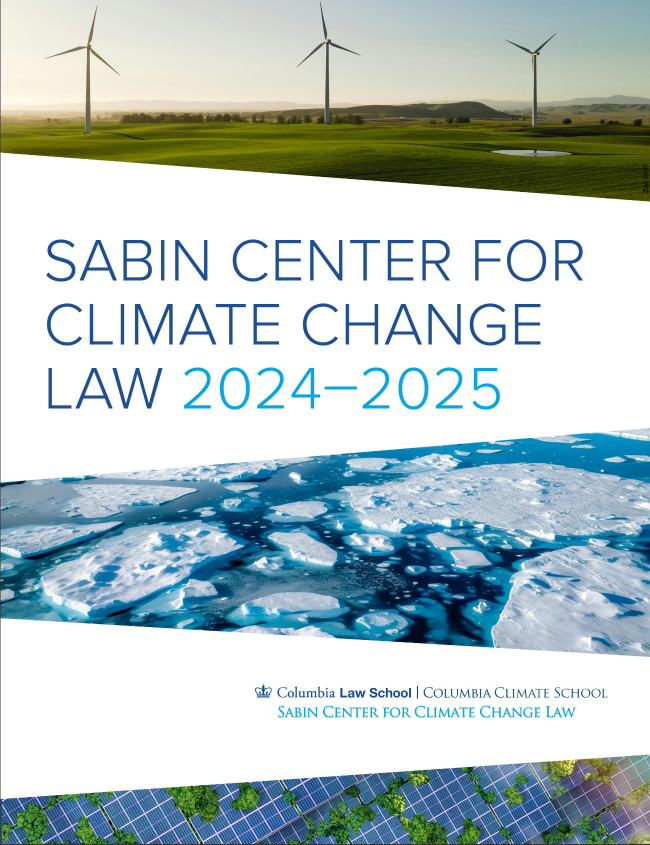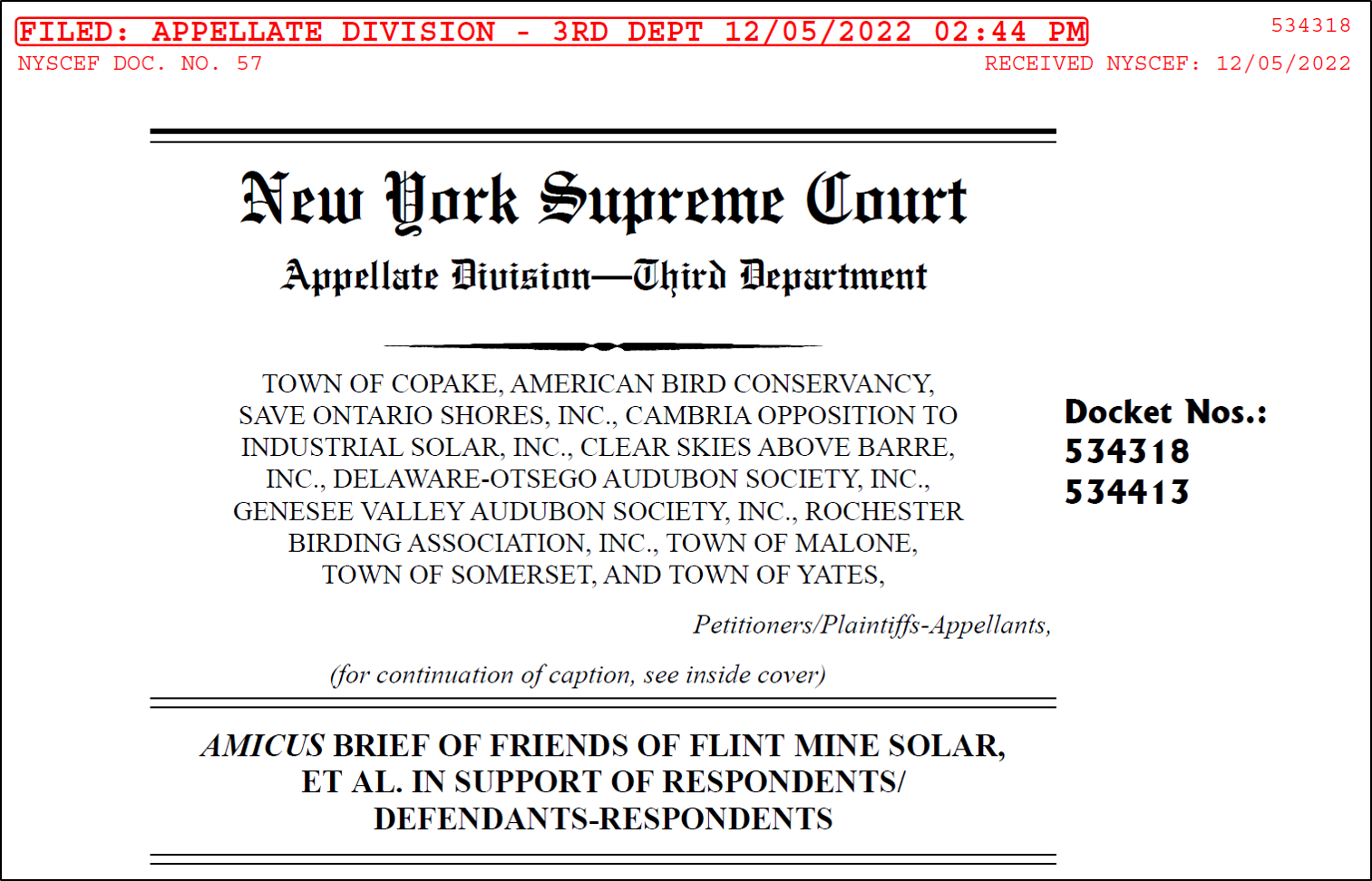Today, the Sabin Center published its 2024-2025 annual report, highlighting its groundbreaking work over the last year to develop legal tools to combat the climate crisis and advance climate change. In 2024-2025, we expanded our work and impact, both domestically in the United States and globally. We added to our team of climate law experts, hosted numerous events, published extensively, and engaged with government, nongovernmental, and private sector partners. Select highlights include:
- In early 2025, with the change in presidential administration, we developed a suite of new online tools to help keep track of federal action on climate change. The Climate Backtracker, launched on Inauguration Day 2025, records steps taken by the Trump-Vance administration to scale back or wholly eliminate federal climate change mitigation and adaptation measures. We also relaunched our IRA (Inflation Reduction Act) Tracker (co-managed with Environmental Defense Fund) and Silencing Science Tracker (co-managed with the Climate Science Legal Defense Fund) to capture actions taken by the Trump administration for the purpose of undermining implementation of the IRA and interfering with climate and other scientific research.
- The Sabin Center has engaged extensively in the climate litigation space. Sabin Center Executive Director Michael Burger participated in a hearing in Barbados before the Inter-American Court of Human Rights, in connection with the Court’s process toward issuing an advisory opinion on state obligations to address climate change. The Sabin Center filed amicus briefs in a number of key U.S. climate cases, including in support of Environmental Protection Agency regulations, and New York City’s Local Law 97—a law designed to reduce greenhouse gas emissions from large buildings.
- In the Climate Law and Finance area, the Center has been active in ongoing regulatory proceedings before the Securities and Exchange Commission and other federal financial regulators. The team has also engaged with relevant state regulators, such as submitting a comment letter to inform regulations for California’s climate disclosure law.
- The Center has continued to play a leading role in efforts to analyze and develop legal frameworks for carbon dioxide removal and has conducted groundbreaking research in the emerging field of atmospheric methane removal. Sabin Center Deputy Director Romany Webb contributed to several international efforts to improve understanding of the existing governance framework for marine-based carbon dioxide removal and the need for governance reforms. She testified before the Senate of Canada Standing Committee on Fisheries and Oceans at a hearing on the legal aspects of marine carbon dioxide removal and gave keynote addresses at a number of major international conferences.
- The Cities Climate Law Initiative team has assisted cities, nonprofit organizations, and city-focused associations in understanding and navigating the changes in federal climate laws and programs brought by the new administration. The team has also focused on developing its work with the Smart Surfaces Coalition, which develops and tracks legal and policy tools to advance the use of smart surfaces—a group of technologies and design strategies that mitigate the effects of climate change in urban environments—especially extreme heat, stormwater flooding, and poor air quality.
- The Center continues to play a leading role in paving the legal path toward the clean energy transition. Our Renewable Energy Legal Defense Initiative (RELDI) works with local residents, community groups, and public interest organizations to advance renewable energy projects, such as solar projects in states like Ohio, Michigan, and Rhode Island. The Center also works to advance decarbonization efforts through its newly launched Model Climate Laws Initiative, headed by Executive Director John Binder.
Read the full annual report here. We look forward to continuing to expand our work, to increase our impact, and to grow our team this coming year!
We extend special gratitude to the faculty, staff, and students who all contribute tirelessly to shape our work in these key areas. We also thank our generous funders and the Columbia Law School and Columbia Climate School, who each ensure our vital work continues.
Tiffany is the Communications Associate at the Sabin Center for Climate Change Law.






